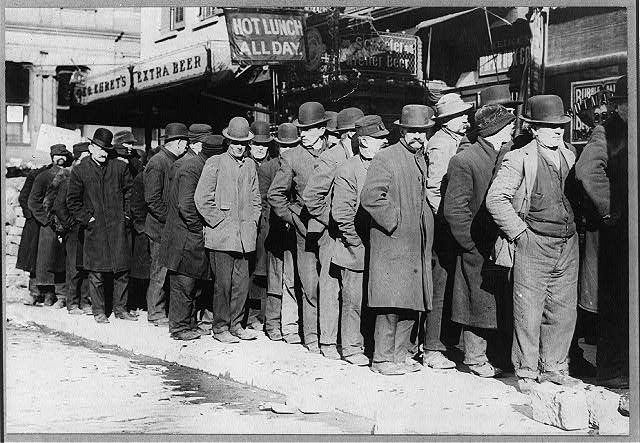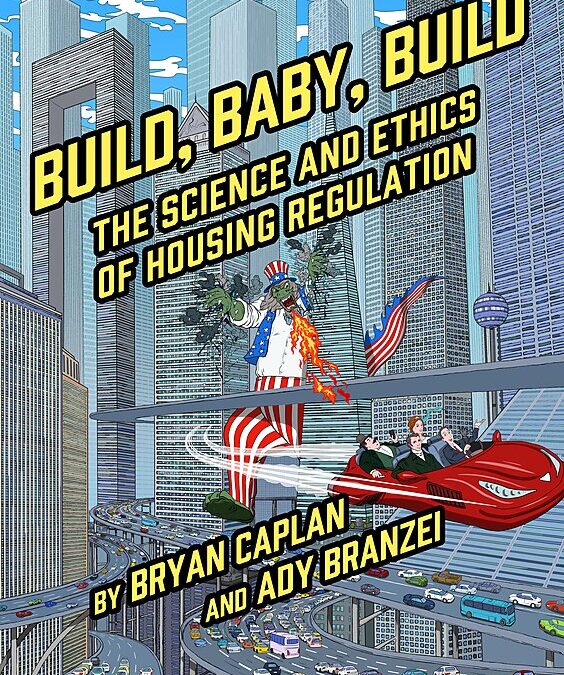In Mahmoud v. Taylor, the U.S. Supreme Court will decide whether parents of children in government schools have a constitutional right to opt out of programs that "expose" their kids to LGBTQ materials. Once again, the chickens have come home to roost. By that, I mean...
Justice

TGIF: “Liberalism and Capitalism”
by Sheldon Richman | Mar 28, 2025 | Economics, Featured Articles, Justice, Sheldon Richman, TGIF
Ludwig von Mises's 1927 path-breaking work in political theory speaks to the current generations. In section 5 of his introduction to Liberalism: The Classical Tradition, Mises sounds impeccably relevant in describing how the opponents of liberalism and the market...

TGIF: The Income Stagnation Myth
by Sheldon Richman | Mar 21, 2025 | Economics, Featured Articles, Justice, Libertarianism, Politics, Sheldon Richman, TGIF
Many people, including some free-market advocates, think Americans are materially worse off today than they were in the 1970s. Some subscribers to that view blame globalization, that is, free trade in goods, which means in labor services. By any reasonable measure,...

TGIF: Say No to a Sovereign Wealth Fund
by Sheldon Richman | Mar 14, 2025 | Economics, Featured, Justice, Libertarianism, Politics, Sheldon Richman, TGIF
Donald Trump wants to create a sovereign wealth fund (SWF). It's a bad idea if your standard is freedom, free enterprise, and free markets. That's not Trump's standard, but we already knew that. A sovereign wealth fund is a government-run investment program. Where...

TGIF: A New Washington Post?
by Sheldon Richman | Mar 7, 2025 | Economics, Featured, Justice, Sheldon Richman, TGIF
If Jeff Bezos is as good as his word, the advocates of full liberty will owe him a standing ovation. As everyone knows by now, Amazon.com founder Bezos, one of the greatest entrepreneurs of all time—a man whose profit-making activities have benefitted mankind...
Abolish Draft Registration, Mr. Trump
by Sheldon Richman | Mar 6, 2025 | Blog, Foreign Policy, Justice
During Friday's famous White House meeting, VP Vance criticized Ukrainian President Zelensky for his government's abduction of men from the streets to fight against Russia. Good for Vance. Conscription is one of the worst things a government can do, especially during...

TGIF: Free the Housing Market!
by Sheldon Richman | Feb 21, 2025 | Economics, Featured Articles, Justice, Politics, Sheldon Richman, TGIF
Economist Bryan Caplan has done it again. His latest graphic nonfiction book is Build, Baby, Build: The Science and Ethics of Housing Regulation, illustrated by Ady Branzei and published by the Cato Institute. (His first was Open Borders: The Science and Ethics of...

TGIF: Emergency! Emergency?
by Sheldon Richman | Feb 14, 2025 | Economics, Featured Articles, Justice, Libertarianism, Sheldon Richman, TGIF
Look, as a libertarian I think the list of federal entities to be abolished soon should include the: Consumer Financial Protection Board, Federal Trade Commission, Federal Communications Commission, Securities and Exchange Commission, Federal Reserve System,...









